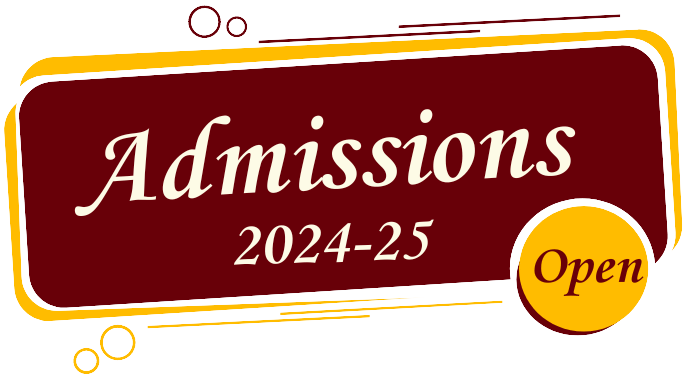Introduction: Why Career Planning Matters:
After education, career success is the main reason why parents send their children to school. Parents are constantly stressed about which career their children will pursue after growing up and how they will thrive in this ever-changing and challenging job market.
To relieve this stress, we have made a step-by-step career planning roadmap for them so that their child can easily know which career could be the best for them.
Whether you're exploring your first job options, choosing a college major, or considering internships, we'll walk you through a practical, step-by-step approach to transform confusion into clarity.
What Is Career Planning and Why Is It Important
Career planning means planning your career for future challenges, like finding a job or pursuing a degree. These situations can give you a lot of stress if you start brainstorming at that time.
It is essential to start career planning so that you can easily overcome future hurdles with a plan.
Step 1: Self-Assessment—Know Yourself First
The first thing before making any plans is to know yourself. In what things are you better than others, and in what things are others better than you? Most people don't realize that they must first know their passion, skills, and talents to determine their future.
For this, the best exercise can be to make a pros and cons list of yourself, write what you are good at in the pros section, and write what you could improve in the cons section.
Step 2: Exploring Career Options
You can explore different career options that interest you at a young age. A great example would be if you like helping people. You could be interested in becoming a doctor one day, or if you are more interested in the digital world, you can explore digital fields like data science or software engineering.
To be more specific, you can confirm one field and then find 2-3 things within that field and brainstorm them until you find which field suits you best.
Step 3: Setting SMART Goals
By performing the last two steps, you would know your skills, passions, and talents. The next step is to align those things with your career goals to create the best-suited career roadmap for you.
To do your career planning easily, there is a method called SMART—Specific, Measurable, Achievable, Relevant, and Time-bound. This method gives you a career planning structure and makes it easier to track your progress.
Specific
Instead of saying, "I want a good job," be precise: "I want to become a game developer in the software industry."
Measurable
Define how you'll track success. For example, "I will complete two coding internships before I graduate."
Achievable
Make sure your goals are realistic given your current stage. As a student, you might not become a senior developer overnight, but aiming to complete a beginner coding bootcamp is within reach.
Relevant
Ensure your goals align with your long-term vision. If your passion lies in healthcare, then shadowing a nurse or volunteering at a clinic is a relevant goal.
Time-bound
Deadlines keep you accountable. Instead of "I’ll learn public speaking someday," say, "I’ll join a public speaking club by the end of this semester."
By setting SMART goals, you'll give your career planning a strong foundation that's hopeful and actionable.
Step 4: Building a Career Roadmap
Building your career is not just about the final goal; to make your career planning realistic and achievable, you have to create a roadmap including all the small wins, which will help you reach your final goal.
A great example would be if you are thinking about scoring 90% in your final exams that are 6 months from now, then you would have to take measures to determine your current scores. Are you giving enough time to study so that you can score 90%? Is the goal realistic based on your current scores?
Only by taking these small steps would you be able to build the perfect roadmap for your career.
Step 5: Skill Development and Learning
To succeed in any career, building complex and soft skills is essential. As a student, this step is all about identifying the knowledge and abilities you need and actively working to develop them.
Gaining Relevant Hard and Soft Skills
Hard skills are the technical abilities or knowledge needed to do a specific job. These include skills like coding, accounting, writing, or using design software. You can learn complex skills through classes, online tutorials, certifications, and hands-on practice.
On the other hand, soft skills are interpersonal qualities that help you work well with others. These include communication, teamwork, problem-solving, and time management. Soft skills are often developed through school projects, group activities, volunteer work, and part-time jobs.
Remember, building your skills takes time and effort. The earlier you start, the better prepared you'll be for internships, job interviews, and real-world responsibilities.
Step 6: Career Development Plans in Action
Create a structured outline that connects your academic choices, skill development, and real-world experiences with your long-term career goals.
Structuring Your Career Planning and Development
Outline the necessary steps that you need to complete, like completing a certain degree, gaining internship experience, or mastering specific skills. Then, break these steps into smaller, manageable actions with clear timelines.
Example Plan:
- Goal: Become a Neurologist
- Academic Focus: Take Science with Biology
- Skills to Build: clinical skills, excellent communication, problem-solving
- Action Steps:
- Gain knowledge about neurology
- Start preparing for the NEET exams
- Start joining clubs related to neuroscience
By creating and regularly updating your career development plan, you stay focused and proactive in shaping your future.
Step 7: Networking and Experience
To work in industry, hard skills are essential; however, to enter any industry, you must learn soft skills such as communication and networking.
Networking is an essential part of any industry when it comes to job placement or career planning. Networking with people related to your career can help you gain more experience and skills compared to people in different industries.
For example, there is a high chance that if you are around people related to your career, you can learn from their experiences. Still, if you want to become a doctor and you are networking with software developers, then you will get the knowledge of software development that you do not require.
That is why choosing the correct person for networking is also essential.
Step 8: Evaluating and Adapting Your Plan
As your education progresses and new opportunities arise, you must check in with your career plan and make updates along the way. You don't do career planning once; it's a cycle of setting goals, acting on them, reviewing your progress, and making improvements.
Tracking Progress and Staying Flexible
Every semester or school year, take a moment to reflect:
- Which goals have I achieved?
- Are there goals I'm struggling with?
- Has anything changed in my interests or circumstances?
Use this reflection to adjust your goals, switch priorities, or revise your timeline. For example, if you realize you're more interested in business than engineering, you can shift your electives or look for a relevant internship.
Being flexible with your plan ensures it stays aligned with your evolving interests and the real-world opportunities around you. By learning to evaluate and adapt now, you'll develop a valuable habit that will help you throughout your career journey.
Common Pitfalls in Career Planning and How to Avoid Them
Even with the best intentions, students often run into common mistakes while planning their careers. Recognizing and avoiding these pitfalls early can save you time, stress, and setbacks later.
1. Lack of Self-Assessment
Making career decisions without understanding your strengths, interests, and values can lead to mismatched choices. Always start with a clear self-assessment.
Tip: Use school career services, personality tests, or talk with a mentor to better understand your profile.
2. Following Trends Without Research
Just because a career is popular or lucrative doesn't mean it's right for you. Following trends without research or personal alignment can result in dissatisfaction.
Tip: Research roles in detail, speak with professionals in the field, and try internships before committing.
3. Ignoring Skill Development
Focusing only on grades or theoretical knowledge won't prepare you for real-world jobs. Many students neglect soft skills and practical experience.
Tip: Get involved in clubs, volunteer work, or online courses that build hard and soft skills.
4. Failing to Adapt the Plan
Life changes, and so do interests and opportunities. Some students stick rigidly to their original plan even when it no longer fits.
Tip: Review your plan regularly and be open to adjustments based on new experiences or feedback.
By staying aware of these common mistakes and being proactive, you can create a flexible career plan that is informed and truly aligned with your goals.
Conclusion: Take Control of Your Career Path
Career planning is a simple process if you follow these steps. You don't have to be overwhelmed by it. As a student, creating a roadmap can help you achieve great success and easily achieve your determined future goals.
Remember, your career is a journey, not a race. Adjusting your direction as you grow and learn more about yourself is okay. The most important thing is to be proactive, stay curious, and make informed choices along the way.
FAQs
1. What is the meaning of career planning?
Career planning means planning your career for future challenges, like finding a job or pursuing a degree.
2. Why is career planning important in life?
Career planning is essential because it gives a clear direction to achieve a goal.
3. How to start your career?
You can start your career by making a career roadmap. If you want to know how to make a proper career roadmap, then click on this link..
4. Why is a career important?
It is essential to start a career so that you can face future hurdles easily with a plan.
5. How to choose a career?
You can choose a career based on your interests and talents.


